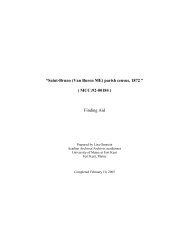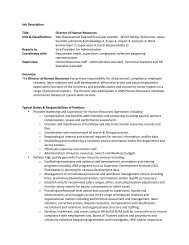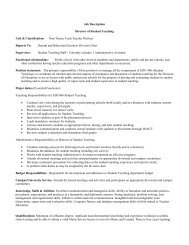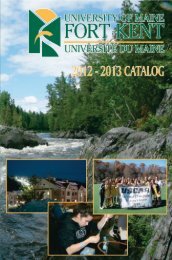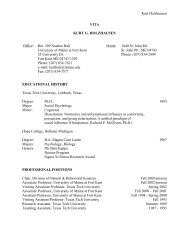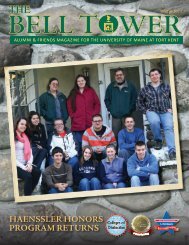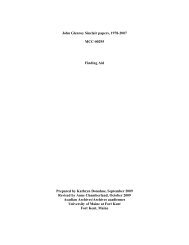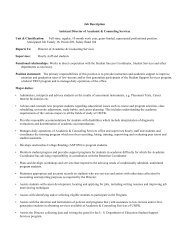QUIDDITCH DOWN UNDERBY ERIC ANDRESQuidditch across the pondwas a long-standing mysteryto many stateside quidditchplayers until recently,with the introduction ofthe IQA Summer Games and the subsequentexplosion of media interest in Britishteams. But while the athletes across theeven bigger pond in Australia haven’t yetgained widespread media recognition, theAussies have a longer-standing and moreorganized quidditch tradition than manyrealize. The Australian Quidditch Association,or AQA, was established in 2011,and more than a half dozen official teamsrally under that banner, traveling just asfar as American teams to play other AQAschools across the continent—and it’s a bigcontinent. Nearly as large as the UnitedStates, Australia has only a fraction thepopulation, spread out over a much widerarea. But that hasn’t deterred the spread ofantipodean quidditch.Their ambition and competitive spiritculminated in Australia’s first large-scaletournament in late November 2011, withfive teams competing for the QUAFL(Quidditch Universities in AustraliaLeague) Cup. Since then, the AQA hosteda quidditch “camp,” submitted a bid forWorld Cup 2015, and formed a team toplay at the Summer Games in Oxford thisJuly. Now, it even has plans to build andestablish the world’s first permanent quidditchpitch.In short: watch out, world.QUIDDITCH CAMPA pre-cursor to the IQA’s QuidCon <strong>2012</strong>,the AQA hosted a “Quidditch Camp” thatincluded workshops on chaser and keeperskills, refereeing, snitching, and runningquidditch teams. The camp was a greatway for the Australian players from differentschools to form a greater intra-leaguebond. Morgyn Benstead, the IQA OceaniaRegional Director and president of theAQA, says that the camp “was the first timethat everyone got to know each other afterQUAFL. We’d met but not really mingledoutside of our own teams.” The camp hostedabout 40 people, with 20 coming fromCanberra, the capitol of Australia, and therest coming from out of state.Benstead would like to host the camp ata rotating location each year, so that playersfrom different regions will have a betterchance to attend. Beth Crane, of the Universityof New South Wales, agreed withBenstead, believing that “rotating thingsis really important for Australia, so morepeople can come to things.” The IQA’sQuidCon <strong>2012</strong>, taking place in Chicagothis July, will mirror much of the AQA’scamp, improving on snitch and ref trainingwith a multitude of workshops to improveteam and league play in a large scale on theAmerican stage.2015 WORLD CUP BIDContinuing with being ahead of the game,the AQA’s ambitions didn’t end with a nationalconvention. After seeing the successof World Cup V in New York City, theAustralian league has set its sights threeyears ahead to host the 2015 World Cup.Zach Bickhoff, President of North QueenslandQuidditch and acting captain of JCUQUAFL CUP 2011. (PHOTOS: MATT HUDSON)Quidditch, was ambitious enough to throwAustralia’s hat in the ring, if not for a reasonableand logical time in the future. “Ifpeople are going to come here for a weekend,we’re looking at more than two daysto line it up with US [university holidays],because we figure if people are going tocome all the way to Australia, they’re reallygoing to spend four days with traveling,”says Bickhoff, who seems to have the cogsworking at full speed on the logistics. “Theymight was well stay longer, so I’ve lookedinto having it be more of a festival than justWorld Cup.”Bickhoff makes it as easy to get excitedfor the Australian World Cup as if it werenext week. A week-long festival in Australiais enough to make any person drool, butfactoring in the amount of quidditch beingplayed and discussed could make even DanPanzarella’s heart grow three sizes.“On top of that I’ve been talking with[the] local government,” says Bickhoff.“They’re doing a big tourism drive at themoment.” The idea of such a festival isenough to catch any player’s eye, but theinvolvement and support of local governmentis something the IQA can’t resist. Ithink we’ll all have our fingers crossed inthe form of the Western Region handshakein order for a “Bludger Down Under” tomaterialize in 2015.IQA SUMMER GAMESIn the meantime, Australia is sending aside to the Olympic Expo matches in Oxford,UK. Its first venture abroad seemsonly logical, according to Bickhoff. “Asthe birthplace of Harry Potter, I think it’s24 Quidditch Quarterly • Summer <strong>2012</strong>
appropriate that that’s where the firstinternational match between differentcountries is happening.”A truly amazing experience for all nationsattending, the final matches on July9 will take place at the Olympic torchlighting festival in South Park.As for the competition, Crane has morethan one reason to be excited: “I’m going todie,” she says with a laugh. “I did athletics,but not team sports growing up. Runningwas my sport. [Playing] chaser, it’s reallyexciting. I’m looking forward to meetinga bunch of other people from the otherteams, and I think it’s appropriate playingin England.” Crane doesn’t let the smallnumber of her squad get her down either.“We have 11, so it’ll be interesting playingagainst the full 21 person USA roster. ButI’m excited.”PHYSICAL CONTACTThese Australians have been able to takethe cue from the IQA on how to play quidditch,but are apprehensive about adoptingthe level of physicality in American quidditch.The AQA recently voted to play bystricter physical contact rules that restricttackling more than the American varietybecause of safety issues.“We still have barging and shoving,which can lead to some down to theground,” explains Bickhoff. “The differenceis, without arm contact it doesn’t bring theother person down with you and avoids thebroom injuries.”James Hosford, of the University ofNewcastle, said he “tends to see an Americanfootball tackling technique, but withoutthe helmets and pads, whichis unreasonable. The technique is notdesigned for someone so unprotectedto get so smashed.”Does American quidditch rely toomuch on the fundamentals of a nationalsport with different physicality requirements?“If rugby were more prominent inAmerica, we could standardize the twoarmtackling technique to somethingrugby-based as an International standard,which would be much safer while still beingrough and tough,” says Hosford.Matt Hudson, also of the University ofNewcastle, notes that “the last Triwizard[Cup] was the first inter-varsity matchwhere we didn’t have to call an ambulance,and that’s a positive thing to say about aquidditch tournament.”All this is not to say that Australiansdon’t like their quidditch with a bite toit—Benstead contests that “Perth plays fullcontact, even though the rest of Australiadoesn’t. They’re always saying quidditch ismeant to be full contact, but we still playquite roughly.”Regardless of opinions on contact, all ofthe Australian administration is eager tosee the result of competition between thetwo countries.PLANS FOR THE FUTUREWhat’s next for Aussie quidditch? A Mid-Winter Cup in July, anofficial IQA regional tournamentin December, and theTriwizard Cup, which will become amonthly tournament in Sydney for any interestedteams to compete in.The AQA is also working on a comprehensivemembership plan, which will bereleased alongside the IQA’s membershipplan for North American teams. The AQAhopes to be a model for other internationalregions as quidditch grows there and localgoverning bodies begin working directlywith the IQA.“Some things are better Down Under,” saysBickhoff. Despite the immense distance,the AQA’s success advancing the sport ofquidditch on a different continent speaksvolumes about the impact and positivityof their league. The Summer Games andfuture World Cups will be sure to solidifythe relationship between Australia and therest of the world, showing everyone thatthe Aussies will show you a good time andmaybe even fight you for it. nQuidditch Quarterly • Summer <strong>2012</strong> 25



